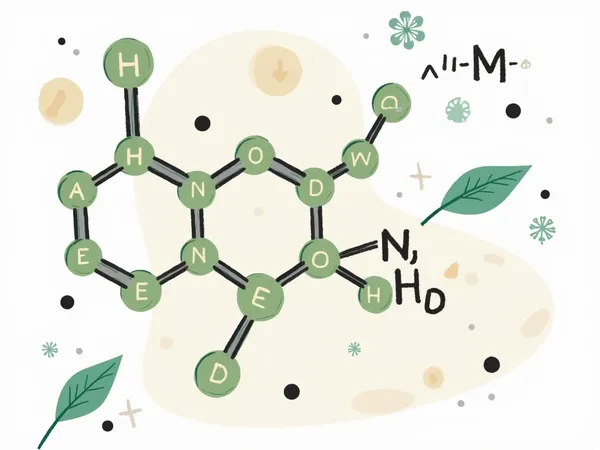
Ready to Start Your Wellness Journey?
Become a Herbalife Preferred Member and enjoy exclusive discounts of up to 25% on all products.
BECOME A PREFERRED MEMBERTyrosine Effects on Brain Function and Mental Performance
Disclaimer: This article is for informational purposes only and should not be considered medical advice. Always consult a healthcare professional or a registered dietitian before making significant changes to your diet or starting any supplementation.
Introduction
Tyrosine is a non-essential amino acid that the body synthesizes from phenylalanine. In individuals with phenylketonuria (PKU), tyrosine becomes an essential nutrient. Tyrosine serves as a precursor for neurotransmitters, thyroid hormones, and melanin. Understanding tyrosine’s biological roles can inform dietary choices and support general health.
In this guide, we explore tyrosine’s functions, dietary sources, potential benefits supported by research, and approaches to include tyrosine in your diet.
Role in the Body
Tyrosine is involved in neurotransmitter synthesis, hormone production, pigmentation, and protein assembly.
Specific Functions
Catecholamine Synthesis: Tyrosine is converted to L-DOPA and then to dopamine, norepinephrine, and epinephrine, which are involved in attention, mood regulation, and stress responses. A study in the Journal of Nutrition (2007) reported that L-tyrosine supplementation attenuated cognitive decline during acute stress.
Thyroid Hormone Production: Thyroid hormones thyroxine (T4) and triiodothyronine (T3) include tyrosine residues in their structure, with iodine atoms attached to these residues to form active hormones.
Melanin Formation: Tyrosine is a substrate for tyrosinase in the synthesis of melanin, the pigment in skin, hair, and eyes.
Protein Incorporation: As one of the twenty standard amino acids, tyrosine is incorporated into proteins, contributing to enzyme activity and cell signaling.
Effects of Deficiency
Phenylketonuria (PKU): Individuals with PKU cannot convert phenylalanine to tyrosine, making dietary or supplemental tyrosine necessary to support growth and development.
Cognitive Performance in Depletion Studies: Experimental tyrosine depletion protocols have been associated with reduced working memory performance under stress (Neuropsychopharmacology, 2015).
Pigmentation: In PKU, reduced tyrosine availability can contribute to lighter skin and hair pigmentation due to decreased melanin synthesis.
Dietary Sources
Best Food Sources
Dietary tyrosine can be obtained from protein-rich foods:
• Beef (lean cuts) – approximately 1,750 mg per 100 g
• Chicken and turkey – approximately 1,400 mg per 100 g
• Fish (salmon, tuna) – approximately 1,200 mg per 100 g
• Dairy products (cheese, milk, yogurt) – 600–1,000 mg per cup
• Soy products (tofu, tempeh) – approximately 1,000 mg per 100 g
• Pumpkin and sesame seeds – approximately 800 mg per ounce
• Almonds and peanuts – approximately 700 mg per ounce
• Lentils and chickpeas – approximately 600 mg per cup
• Whole grains (oats, wheat germ) – 400–500 mg per cup
• Avocado and bananas – 50–100 mg per fruit
Supplementation
Individuals with PKU require tyrosine supplementation. L-tyrosine supplements have been studied in acute stress protocols at doses of about 100–150 mg/kg body weight. Common supplemental dosages in research range from 100 to 300 mg/kg, though practical daily amounts are typically lower.
Excessive intake may cause headache, gastrointestinal discomfort, or elevated blood pressure. Consult a healthcare provider before using supplements.
Health Benefits Supported by Research
Cognitive Performance Under Stress: A double-blind study in Brain Research Bulletin (2001) found that participants receiving 150 mg/kg of L-tyrosine maintained performance on working memory tasks during cold-induced stress compared to placebo.
Daily Requirements
The World Health Organization provides guidelines for combined phenylalanine and tyrosine intake:
Infants (0–6 months): 40 mg per kg body weight
Children (1–9 years): 25 mg per kg body weight
Adolescents and Adults: 14 mg per kg body weight
Pregnancy and Lactation: Requirements may increase due to higher overall protein needs.
These guidelines account for endogenous conversion and dietary sources. Individuals with PKU or other metabolic conditions should follow personalized medical advice.
Tips for Incorporation
To include tyrosine-rich foods in your diet:
• Begin with a protein-rich breakfast, such as Greek yogurt with pumpkin seeds
• Prepare lean meat or fish dishes with whole grains and vegetables
• Snack on nuts and seeds
• Use tofu or tempeh in stir-fries
• Add cheese to salads and whole-grain dishes
• Include legumes in soups and salads
• Combine grains and pulses (e.g., beans and rice) for balanced amino acids
• Consider a protein shake after exercise if additional intake is needed
Conclusion
Tyrosine is a non-essential amino acid involved in neurotransmitter production, thyroid hormone synthesis, and melanin formation. Adequate dietary intake can be achieved through protein-rich foods. Individuals with PKU require tyrosine from diet or supplements. For most people, balanced meals provide sufficient tyrosine to support physiological functions.
Call to Action: Review your dietary protein sources to ensure they include tyrosine-containing foods, and consult a healthcare professional if you have metabolic conditions affecting tyrosine metabolism.
Ready to Start Your Wellness Journey?
Become a Herbalife Preferred Member and enjoy exclusive discounts of up to 25% on all products.
BECOME A PREFERRED MEMBER